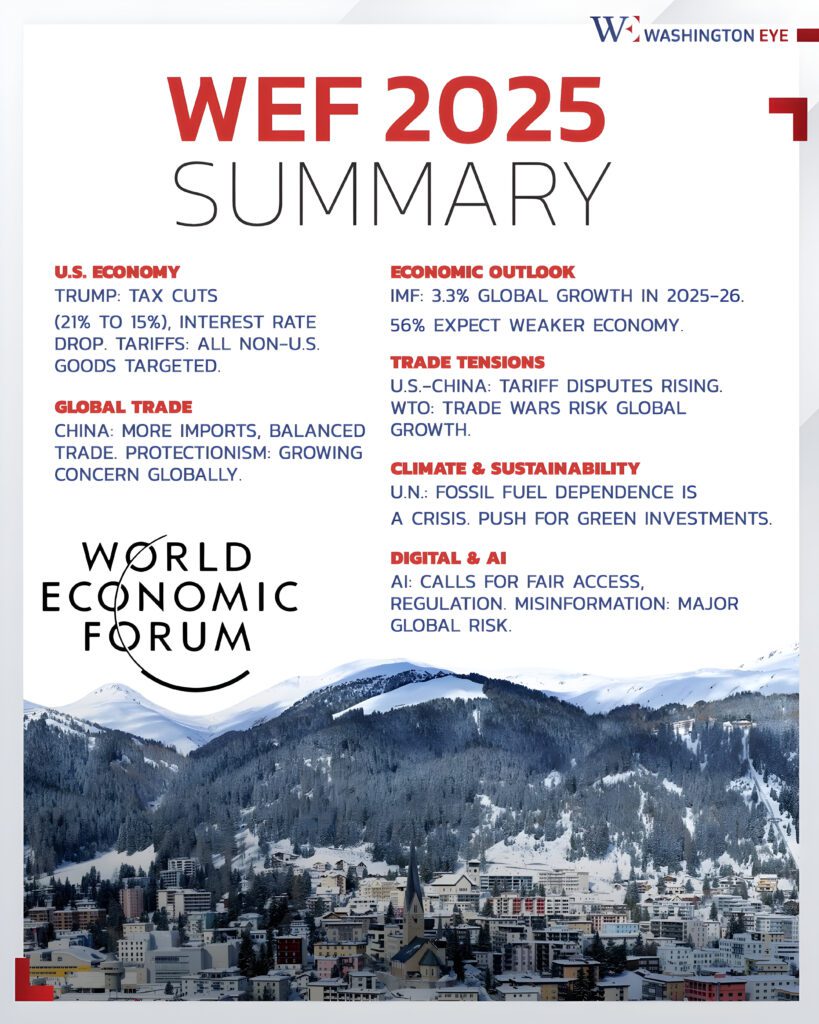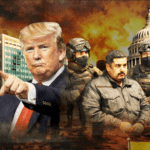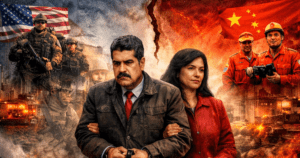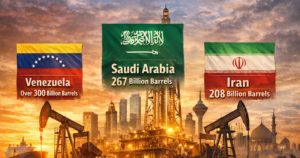The 2025 World Economic Forum (WEF) Annual Meeting, held in Davos, Switzerland, brought together global leaders from politics, business, and civil society to address pressing global challenges. This year’s discussions highlighted themes of sustainability, innovation, and cooperation amidst growing global complexities. Here are the key insights:
Reimagining Growth in a Fragmented World
Under the theme of “Reimagining Growth”, participants focused on the need for sustainable and inclusive economic systems. Climate change, energy transitions, and social equity were at the forefront, with discussions emphasizing the importance of creating resilient supply chains and fostering green innovations. Leaders stressed the urgency of balancing economic growth with environmental stewardship and social well-being.
Global Power Dynamics and Regional Cooperation
Geopolitical tensions and regional challenges were central to the discussions. The conflict in Ukraine and its ripple effects on energy and food security were key points of concern. European leaders advocated for greater energy independence and economic resilience, while Ukrainian representatives called for sustained global support to counter aggression and rebuild their nation.
The Middle East featured prominently, with calls for collective action to address humanitarian crises in Gaza and Syria. UN Relief Chief Martin Griffiths highlighted the dire need for aid and long-term stability strategies. Saudi Arabia showcased its transformation through Vision 2030, emphasizing green energy investments and technological innovation as pathways to regional and global leadership. Saudi leaders also stressed their role as a mediator in the region, advocating for dialogue and conflict resolution.
Discussions on Syria centered around reconstruction efforts and the role of international stakeholders in ensuring sustainable peace. The situation in Gaza was highlighted as a humanitarian emergency, with global leaders urging immediate action to alleviate suffering and rebuild infrastructure. Iran’s geopolitical position, including its nuclear ambitions and relationships with neighboring states, added a layer of complexity to the debates. Participants emphasized the need for diplomatic measures to address these tensions, citing the broader implications for regional and global security.
Private Sector’s Role in Economic Recovery
The role of the private sector in addressing global challenges was a recurring theme. Jamie Dimon, CEO of JPMorgan Chase, emphasized the need for corporate innovation and public-private collaboration to combat inequality and climate change. Private enterprises were urged to lead by example in fostering sustainable practices and inclusive growth.
Gita Gopinath, Deputy Managing Director of the IMF, provided a cautiously optimistic economic outlook, stressing the need for structural reforms, fiscal discipline, and multilateral cooperation to navigate inflationary pressures and geopolitical uncertainties. Her remarks underscored the importance of adaptive strategies in a rapidly evolving global landscape.
Innovation and Technology: Pioneering a New Era
Technological advancement was hailed as a cornerstone of future growth. Panels delved into the transformative potential of artificial intelligence, green technology, and digital infrastructure. Ethical considerations and regulatory frameworks were discussed to ensure innovation aligns with societal values. Leaders also highlighted the need to bridge the digital divide, especially in developing regions, to ensure equitable access to technological benefits.
China’s Vice Premier shared the nation’s vision for global economic collaboration and technological self-reliance. The speech underscored China’s ambitions to lead in green innovation and foster equitable global trade practices. Africa also emerged as a key player in the global tech landscape, with leaders from the continent calling for investments in renewable energy and technology to unlock its vast potential.
The Path Forward: Unity in Diversity
A recurring message throughout the forum was the need for unity in addressing global challenges. From addressing climate change to managing geopolitical conflicts, the call for inclusive and cooperative solutions resonated strongly. Africa’s growing role in global cooperation was highlighted, with discussions emphasizing the continent’s potential to drive renewable energy and trade opportunities.
The WEF 2025 was a platform not just for identifying problems but also for proposing actionable solutions. The emphasis on sustainability, technological advancement, and global unity provided a roadmap for navigating an increasingly interconnected and uncertain world.














